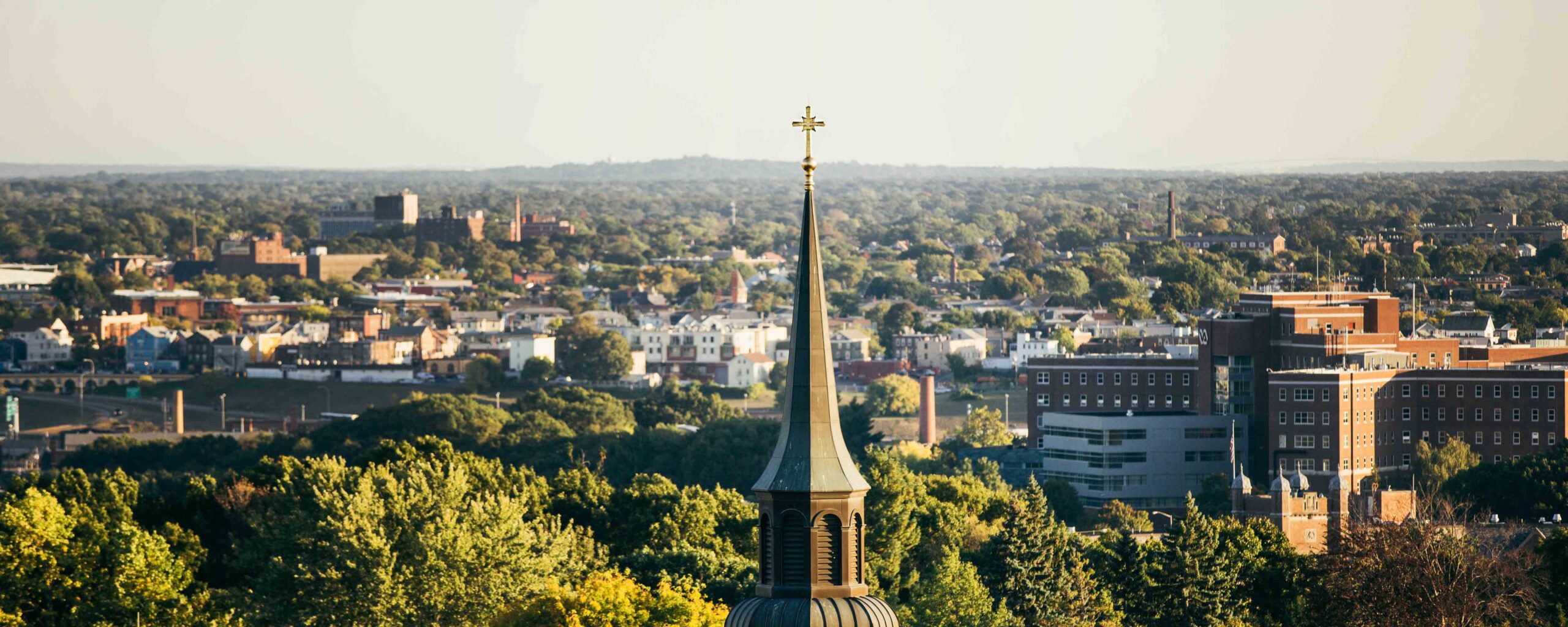What does it mean to be a Catholic and Dominican College
What does it mean to be a Catholic and Dominican College?
Contents:
What does it mean to be Catholic?
What does it mean to be Dominican?
What does it mean to be a Catholic and Dominican College?
What does it mean to be Catholic?
What does it mean to be Catholic? This is not an easy question to answer. On the one hand, it means that one is a member of the Catholic Church, believes what the Church teaches, and does what Catholics do. On the other hand, to be catholic — and here the lowercase is intentional — is to be open, tolerant, and universal in one’s interests and sympathies. Both definitions are right and both apply to Providence College. But the most radical sense of being Catholic is to view the created world as a sacrament of the divine, that is, as something that both points to and makes present God’s saving grace.
This is a radical claim and implies a reconciliation of what otherwise appears to be opposed. But it is one that derives from our faith in Jesus Christ who in his own person effected that reconciliation. Jesus is both the son of Mary and the Son of God, and as such is fully human and fully divine.
This is what is meant by the doctrine of the Incarnation, a word that literally means taking on flesh. In Jesus, God took on our humanity and made it his own. In this way the humanity of Jesus reveals his divinity. It also changes our understanding of the relationship between the Creator and his creation. For if the humanity of Jesus — his flesh and blood — can reveal and make present his divinity, then creation is raised to a new dignity by virtue of God’s self revelation. This becomes especially apparent when we consider the church.
The faults and failings of the church are all too apparent, and its humanity, its creatureliness if you will, is certainly evident in the people who belong to it. Yet Catholics believe that despite its limitations the church has been chosen and sanctified by God to be a sacrament of Jesus Christ, to embody his person and mission and to both point to him and make him present in the work that it does in his name.
It is for this reason that Catholics believe that bread and wine at Mass become the body and blood of Christ, that pouring water on a child’s brow in baptism renders her a new creation in Christ, and that a young couple’s marriage vows transforms their intimate love for one another into an expression of God’s love for us all.
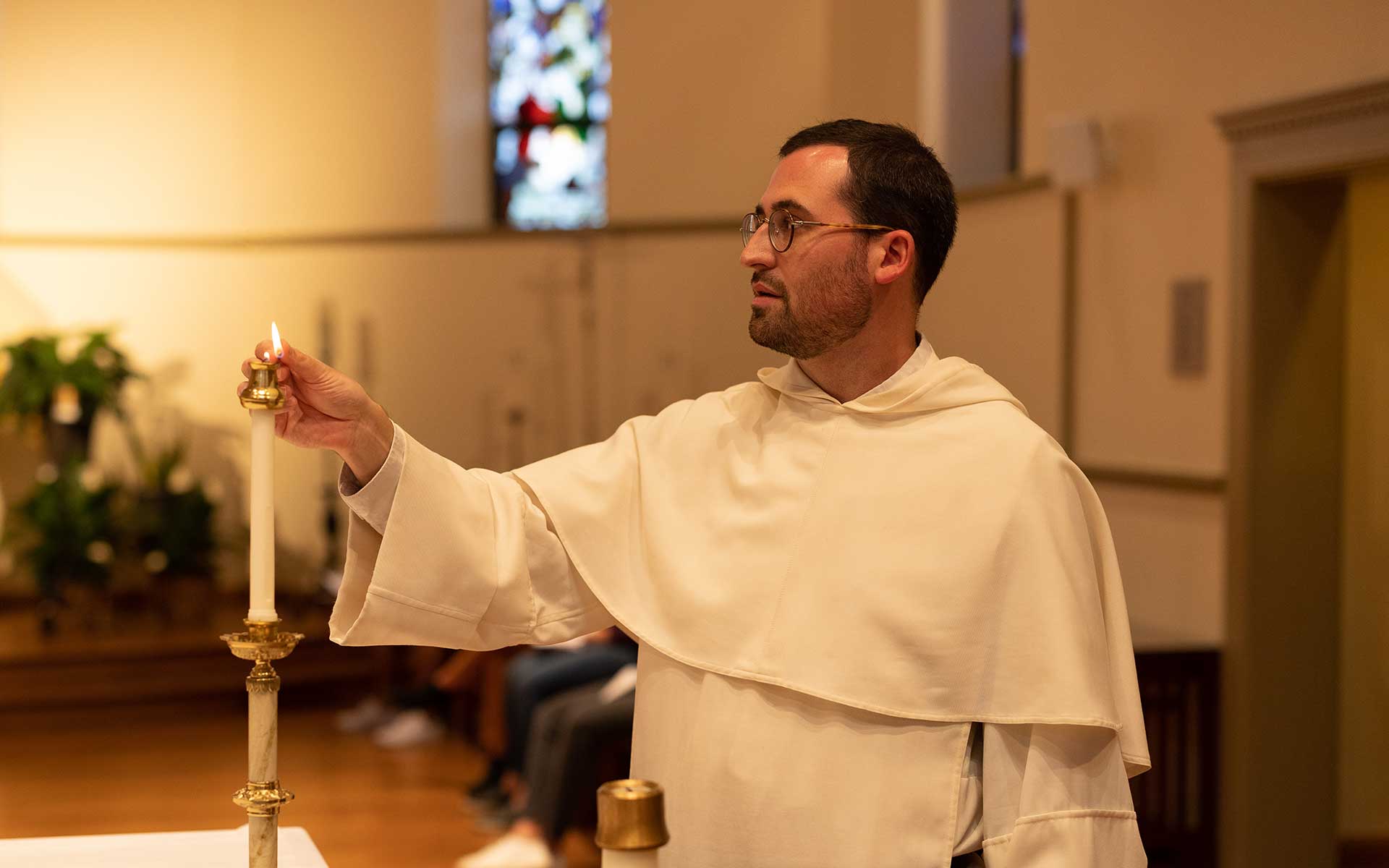
“Catholics believe that … the church has been chosen and sanctified by God to be a sacrament of Jesus Christ, to embody his person and mission and to both point to him and make him present.”
Thus, there is a paradox at the heart of the sacramental vision for what appears to be ordinary, a mere creature, is in fact extraordinary by virtue of having been transformed by God’s saving grace. In a more limited way, the same could be said about a poet’s words, a doctor’s care, and a friend’s forgiveness — all that is good comes from God, reflects the goodness of God, and points back to God.
To view the world in this way — to see the world of people and things as capable of revealing God and to understand that God’s grace can suffuse even seemingly secular realities — is to regard all things as potentially holy. And because they are we are required to live and act in particular ways.
How we treat one another and especially the least among us, what we profess and hold to be true, how we pray and worship, the questions we ask, and the careers we pursue are no mere accidents nor matters of insignificance. They are rather measures of the grace we have been given and of our fidelity to God’s call in our lives, and as such, they are the ways in which we are meant to transform the world.
What does it mean to be Dominican?
St. Dominic de Guzman was a thirteenth century Spaniard known for his prayer and his preaching, his compassion for those in need, and his joy even amidst adversity. He was a man who defied easy definition. He was neither a monk bound to a single monastery nor a solitary priest ministering to the flock of his parish but something new — an itinerant friar steeped in prayer who put himself and his brothers at the service of the church wherever there was need. The Dominican vocation is therefore complex and two of the traditional mottoes associated with the Order hint at this complexity: contemplare et contemplata alliis tradere means to contemplate and to share the fruits of contemplation with others, while laudare, benedicere, et praedicare means to praise, to bless, and to preach.
Dominicans are thus called to be both contemplatives and apostles, and to balance prayer, study, silence and communal living with service to others and an engagement with the world.
It is for this reason that Dominicans live and pray together in religious houses called priories — such as St. Thomas Aquinas Priory at Providence College — and spend many years in study, but also why they teach and minister in colleges and universities, pastor people in parishes, and serve as missionaries throughout the world. But if the vocation is a complex one it is also a focused one.
Indeed, the enduring motto of the Order and of Providence College is veritas, truth, and one of the truths at the heart of the Dominican vocation is the truth of sacramental grace.
St. Dominic founded the Order of Preachers — hence, the O.P. after a Dominican’s name — in 1216. It was a time of rapid social change and one in which people were beset with a welter of competing ideologies that vied for their loyalty. Amidst it all, people longed for the authentic Christian message. Unfortunately, the church was ill-equipped to provide what people needed. The clergy was often poorly educated, corruption was rife, and there seemed to be little authentic witness to the Gospel. As a result, heresies like Albigensianism provided an attractive alternative. Popular in southern France and often inspiring admiration because of the piety of its adherents, Albigensianism attempted to solve the complex problem of the relationship between the world of the senses and the world of the spirit simply if dualistically.
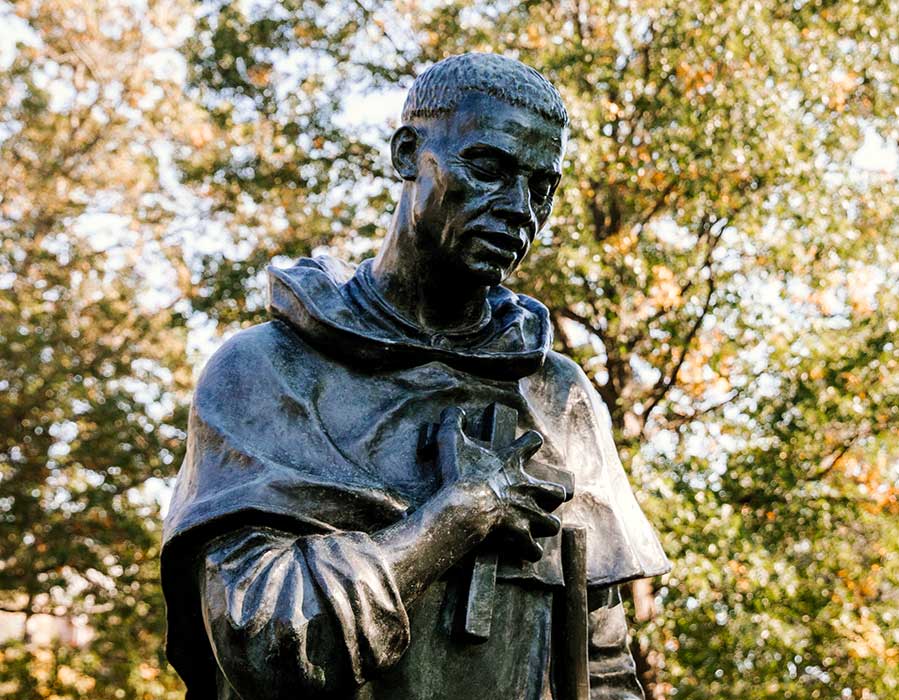
“Indeed, the enduring motto of the Order and of Providence College is veritas, truth, and one of the truths at the heart of the Dominican vocation is the truth of sacramental grace.”
It maintained that creation was the result of an evil creator and is therefore inherently evil, while the soul or spirit comes from a good God and is good. The choice was equally simple. One should forsake the world of people and things and embrace what is purely spiritual. Indeed, its most devout members would literally starve themselves to death so that their souls could be released from the prison of their bodies and find their proper home with God. Obviously, such a view contrasted sharply with the Gospel revelation of Jesus as fully human and fully divine, and left little room to approach the world as a sacrament of God’s grace.
St. Dominic was therefore intent on defending the incarnation of God in Jesus, and so too the integrity of creation and the possibility of sacramental grace. He gathered together men and women, friars and nuns and later sisters and laity, who would live the Gospel more authentically and preach its truth with both their words and their lives. From the beginning he sent his friars to the great universities of the time: Oxford, Paris and Bologna. He wanted his friars to be educated so that their preaching and teaching would be informed, able to answer the questions of the day, and meet people’s longing for the Gospel. Ideally, his friars were to be men of faith, prayer, and learning who could respond to the needs of their time without fear and confident that the human mind, a mere creature, could rightly if imperfectly understand its Creator.
It is perhaps no accident, therefore, that the colors of the Dominican habit — the religious garb worn by the friars, nuns, and many sisters — are black and white, representing as they do the reconciliation of apparent opposites in a greater unity. It is certainly no accident that these are the colors of Providence College.
What does it mean to be a Catholic and Dominican College?
Some aspects of Providence College’s Catholic and Dominican identity are obvious. The friars in their habits are hard to miss, St. Dominic Chapel is located in the very center of campus, and crucifixes adorn the walls of classrooms and offices.
Additionally, most students, faculty and staff are Catholic, the 10:00 Mass on Sunday nights is usually standing room only, and students are required to take classes in philosophy and theology.
Other aspects of the Catholic and Dominican identity are more subtle or even unexpected. Catholic teaching guides the investment of the endowment, the enforcement of parietals in the residence halls, and the generosity extended to students and employees in need. Nearly a thousand students volunteer their service through Campus Ministry each year, and at all hours someone can be found praying quietly in the chapel.
By charter, Providence College was the first college or university in Rhode Island to welcome students of every faith or none, and it has a long, close and continuing relationship with Rhode Island’s Jewish community. Indeed, some of the College’s most devoted teachers and alumni are Jewish.
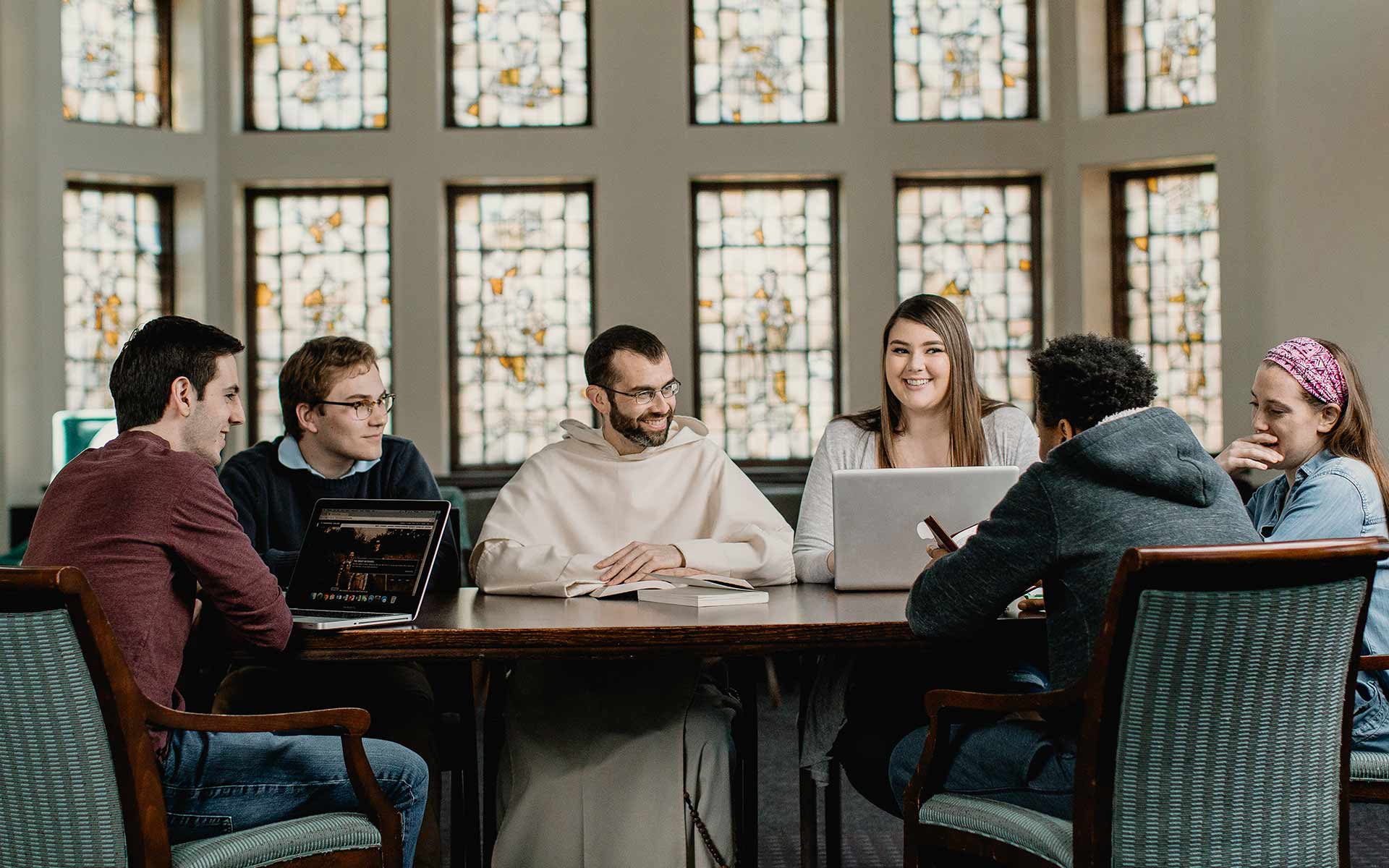
“Dominicans assert that faith and reason are compatible, complementary, and point to a single truth.”
Yet in some ways the Catholic and Dominican character of Providence College precisely as a college is most evident in its approach to faith and reason.
For many people, faith and reason stand in opposition to one another; they are black and white, irreconcilable, and best kept apart. Not so for Dominicans. In the tradition of St. Thomas Aquinas, Dominicans assert that faith and reason are compatible, complementary, and point to a single truth.
There is no opposition between the theory of evolution and belief in divine providence, for example, because how God accomplishes his purposes is a distinct question from why, even as the answers to the two questions are intimately related. Science has every right to try and understand how the universe works — indeed, it is God’s will that the human mind probe creation in order to understand it — and theology has every right to assert that everything that takes place is in service of a loving plan.
What remains true is that it is God’s creation. Moreover, while faith is a gift from God, reason supports faith. This means that faith in God is not merely the result of custom, feeling, and private choice but can be a thoughtful and reasonable response to the evidence at hand. Indeed, while intimate knowledge of God in himself — Father, Son and Holy Spirit — requires revelation, knowledge that God exists can be arrived at by reason alone.
The implications of this assertion of the compatibility of faith and reason for education are profound. Questions, debates and challenges are welcomed, as are people of hesitant faith, different faiths, or even no faith at all. Believers cannot take refuge in the assurances of faith but must learn to provide reasons for what they believe and, when it comes to the classroom, they must pursue biology, history, or accountancy with uncompromising rigor and integrity as a biologist, historian, or accountant.
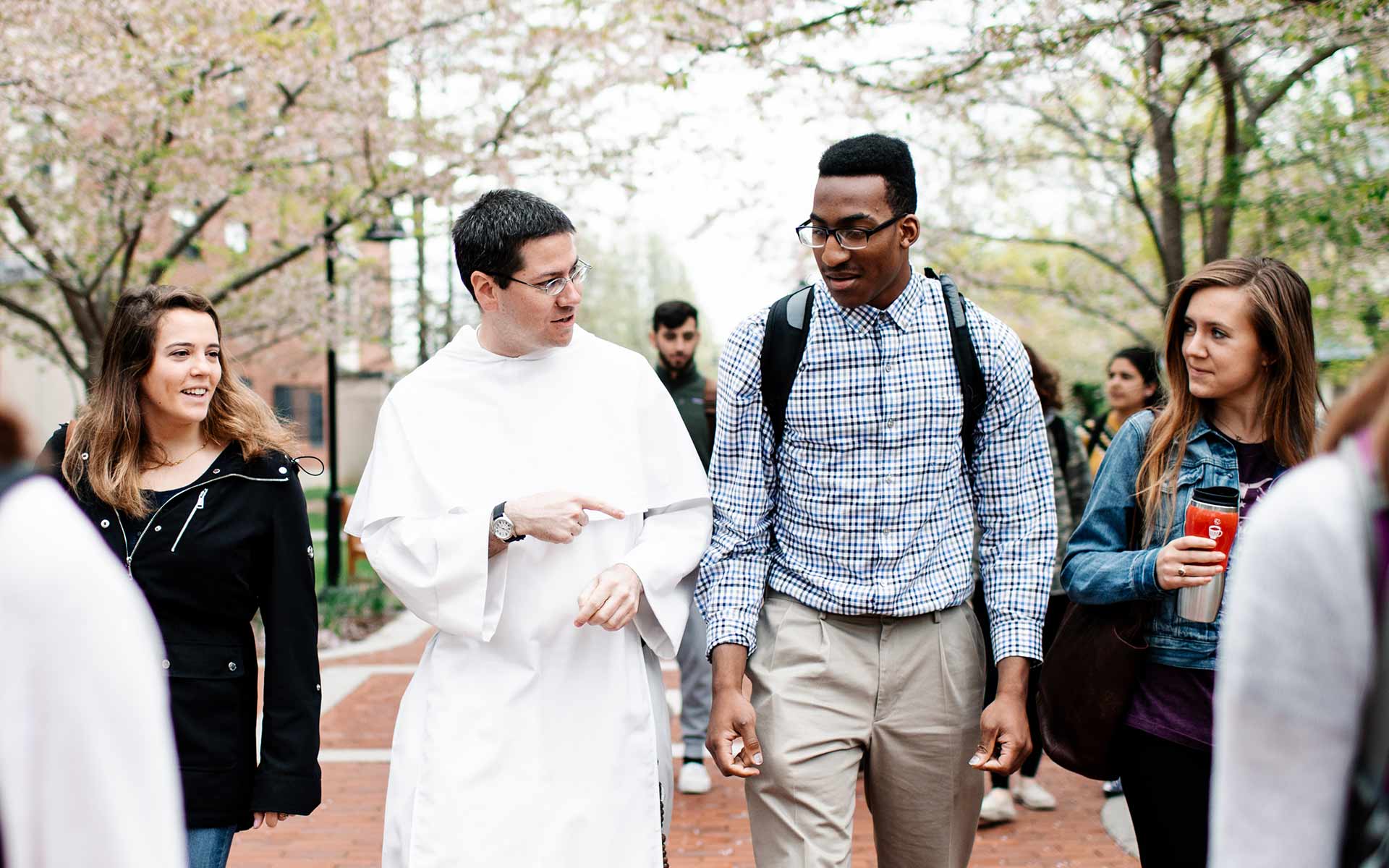
“[Providence College] aims to provide an education for the whole person — body, mind and soul.”
At the same time, those of questioning or absent faith will be challenged by their studies in the Development of Western Civilization, philosophy, and theology. There they will have to contend with an understanding of God that is hardly the sop of comfort that Marx and Freud asserted, and will have to reconsider whether in fact faith in God is a more exacting stance than is non-belief.
It should be evident that Providence College aims at something ambitious and critically important. It aims to provide an education for the whole person — body, mind and soul — that bridges the common divides between matter and spirit, God and creation, faith and reason.
In doing so, it affirms the distinctively Catholic sense of sacrament and grace, and, like the Dominican habit, joins together apparent opposites in a greater unity. If successful, this means that everyone at Providence College will understand that they are made in the image and likeness of God, that their work, love and play can be replete with God’s grace, and that they have a unique role in God’s loving plan, that is, in his providence.





